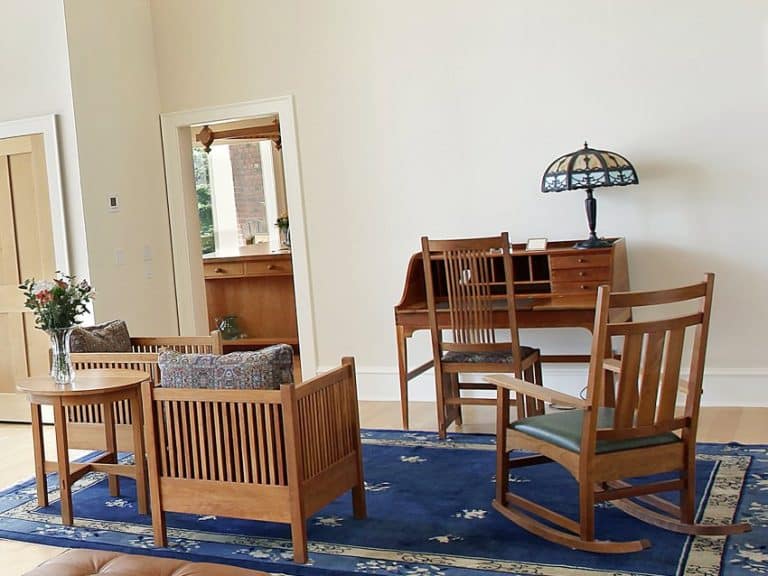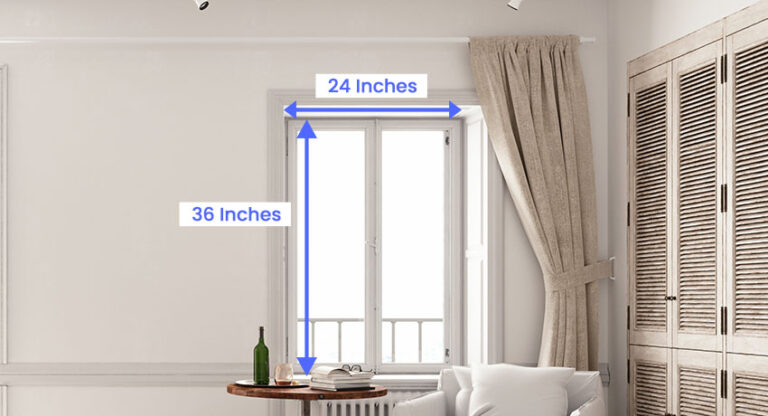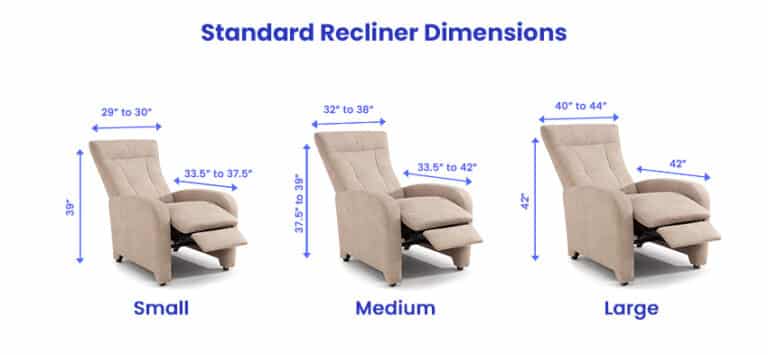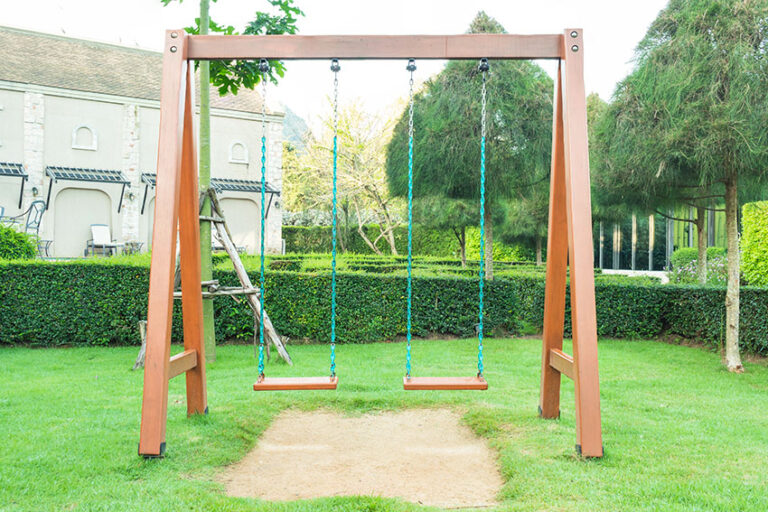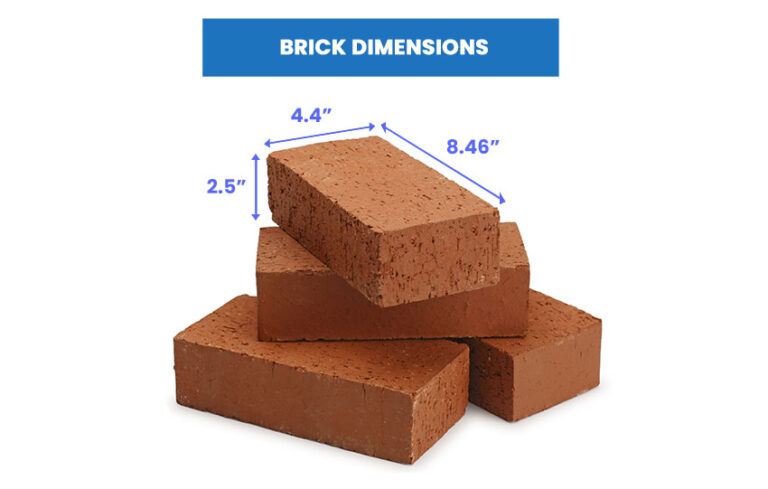Dresser Dimensions (Sizes Guide)
Here’s our dresser dimensions guide, including standard, horizontal, small, and double chest of drawers sizes, and how to measure this bedroom furniture.
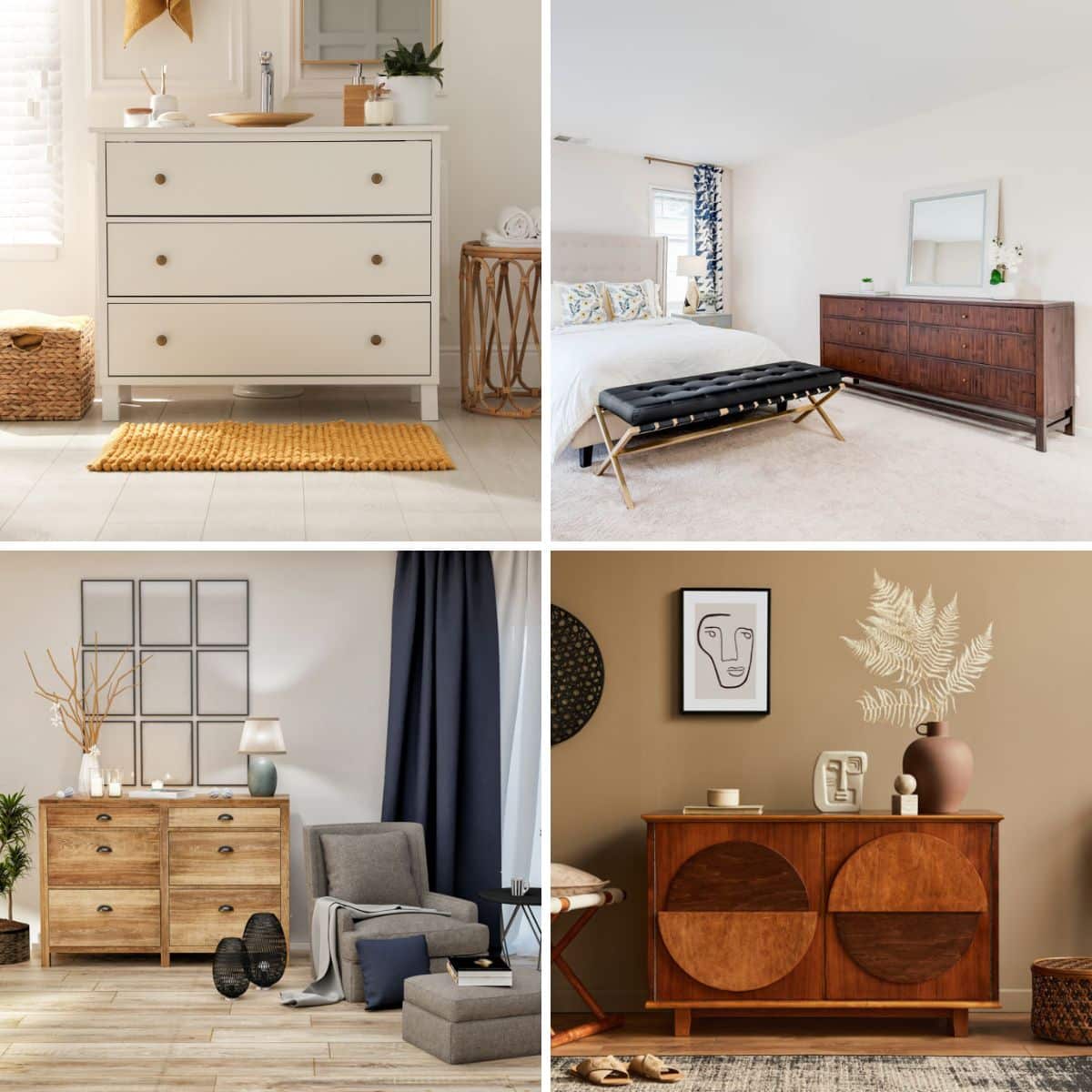
An alternative to a closet or wardrobe is a spacious dresser with drawers. They come in various shapes and sizes and suit whatever interior theme, from traditional to more contemporary. Before anything else, the dresser size should be determined to ensure it’s the right size for your room.

Upload a photo and get instant before-and-after room designs.
No design experience needed — join 2.39 million+ happy users.
👉 Try the AI design tool now
Standard Dresser Size
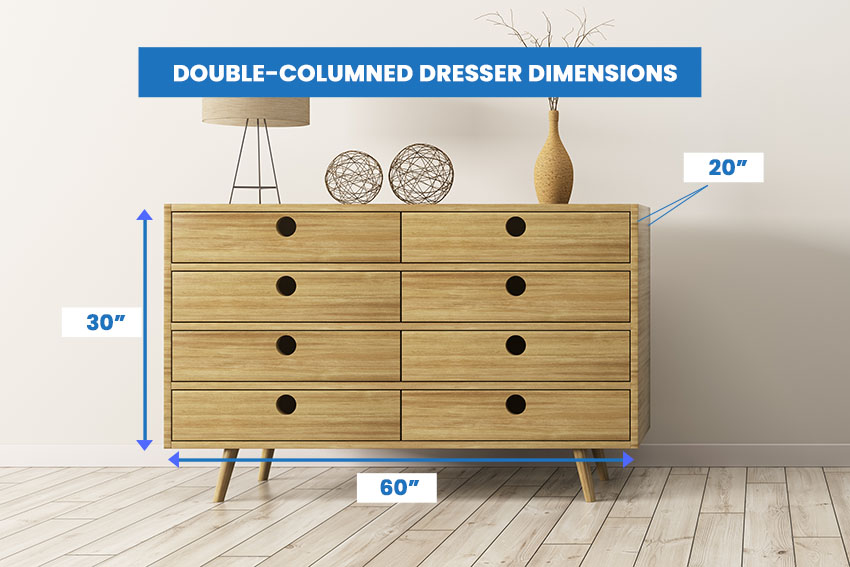
Dressers, sometimes called chests, range in different sizes according to various functions. The main difference between the two is that a dresser traditionally has a top mirror attached to it, while chests exclusively only have drawers.
There are many types of dressers, from combination to changing tables for nurseries to the standard horizontal design that is usually a fixture in most bedrooms.
To provide you with a thorough list of dimensions, we will give you measurements of three of the most common types available in most furniture stores: the standard horizontal, the double, and the small dresser.
Standard Depth of a Dresser
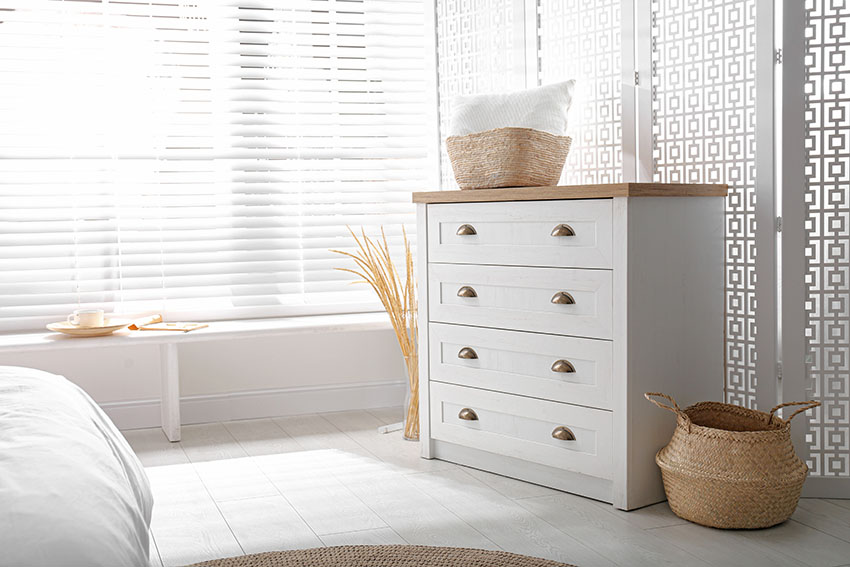
One of the essential things to consider when looking for the perfect dresser is the depth or the measurement from front to back. Together with how wide it is, this will determine the drawer space you are provided.
The depth of a standard horizontal dresser usually ranges between 18 to 24 inches or 46 to 61 centimeters, and they commonly have three to four drawers.
For a double-columned horizontal double dresser, the depth usually extends up to 20 inches or 51 centimeters.
Small dressers are generally seen in kid’s rooms and have the same depth as standard horizontal units; they are 18 to 24 inches or 46 to 61 centimeters deep.
How Deep Should a Dresser Be?
No matter what type they are, dressers generally have depths that run between 18 to 24 inches or 46 to 61 centimeters.
This size is the standard, and drawers with more extended depths than these are usually custom-made or made-to-order.
Standard Width for a Dresser
The width of a drawer is measured from side to side. Like the depth, the width is an important factor, especially if the storage capacity is one of the main things high on your list of furniture essentials.
For a standard horizontal dresser with three to four drawers, the widths usually measure between 30 to 70 inches or 76 to 178 centimeters.
A double drawer has a fixed width of 60 inches or 152 centimeters, while a small chest stretches from 30 to 40 inches or 76 to 102 centimeters.
Standard Height for Dressers
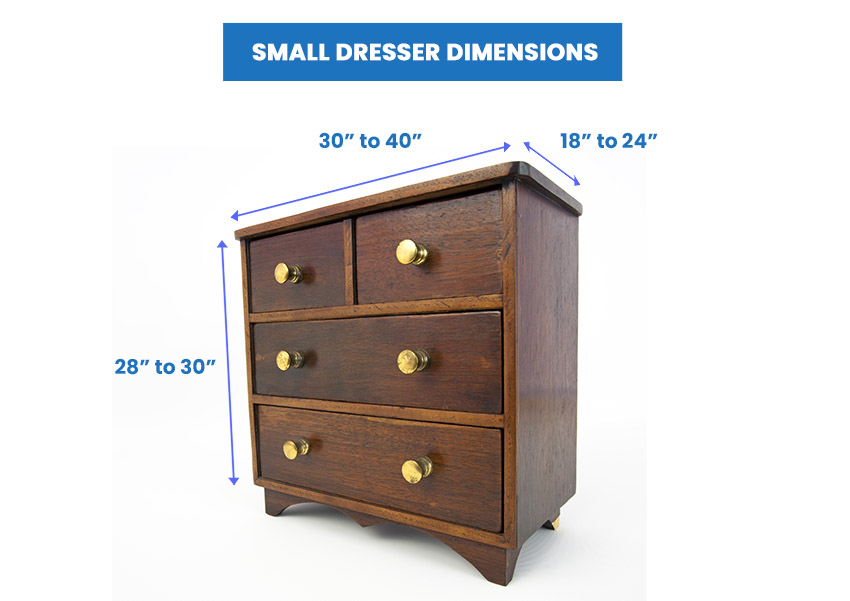
Dressers come in a variety of heights, and some want them a little taller to utilize the counter space available ergonomically. Picture frames, a vase of flowers, and sometimes even the television are placed on top. At the same time, some, like the small cabinets for kids’ rooms, are smaller to save space and avoid accidents.
It’s important to choose a dresser that is well-built and made from durable materials. – The Ultimate Guide to Choosing the Perfect Nursery Furniture, Aurora Books
A standard horizontal dresser usually has a height that ranges from 30 to 35 inches or 76 to 89 centimeters.
This height falls right at a person’s hip with an average height. The height is set at 30 inches or 76 centimeters for a double design with two sets of drawers stacked three high.
In contrast, a small dresser can reach from 28 up to 30 inches or 71 to 76 centimeters.
Long Dresser Measurements
Long dressers are characterized by their more extended widths. This size will provide more than enough space for storage and also have a wide countertop for things an owner wishes to utilize. An example of a longer drawer is the IKEA Malm 6-Drawer Chest.
The IKEA Malm has a dimension of 63 inches long or 160 centimeters in width, a height of 30 and 3/4 inches or 78 centimeters, and a depth of 19 inches or 48 centimeters. Being longer than it is taller, long furniture will be perfect for rooms that have lower types of ceiling designs.
Dresser Drawer Dimensions
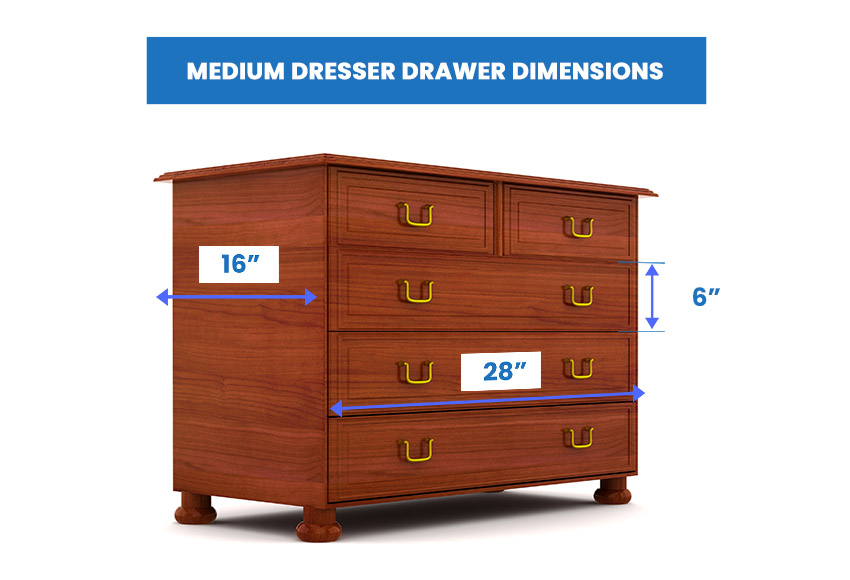
There are no fixed or standard dimensions to a chest of drawers; some will vary from one to the other depending on factors such as design, brands, or even the type of materials used for construction. But for the most common cabinet sizes, here are the drawer dimensions.
A small chest of drawers usually comes with a width of 16 inches or 41 centimeters, a depth of 14 inches or 36 centimeters, and a height of 4 inches or 10 centimeters.
A medium-sized dresser’s drawer is 28 inches or 71 centimeters in width, a drawer depth of 16 inches or 41 centimeters, and a height of 6 inches or 15 centimeters.
On the other hand, a large chest of drawers is 30 inches or 76 centimeters in width, with a depth of 18 inches or 46 centimeters, and 8 inches or 20 centimeters in height.
Standard 6 Drawer Dresser Dimensions
The standard six-drawer dresser’s dimensions differ on many factors, but it generally extends around 36 to 60 inches or 91 to 152 centimeters from side to side.
A six-drawer chest will usually have a height of 26 to 44 inches or 66 to 112 centimeters and be 16 to 18 inches 41 to 46 centimeters deep.
Measuring a Dresser
| Measurement Type | Method |
|---|---|
| Width | Measure from the left edge to the right edge at the widest part. |
| Depth | From the side, measure from the front edge to the back edge at the deepest point. |
| Height | From the side, measure from the floor straight to the highest point. |
| Drawer (optional) | For each drawer, measure the width (side to side), depth (front to back), and height (outside bottom to top). |
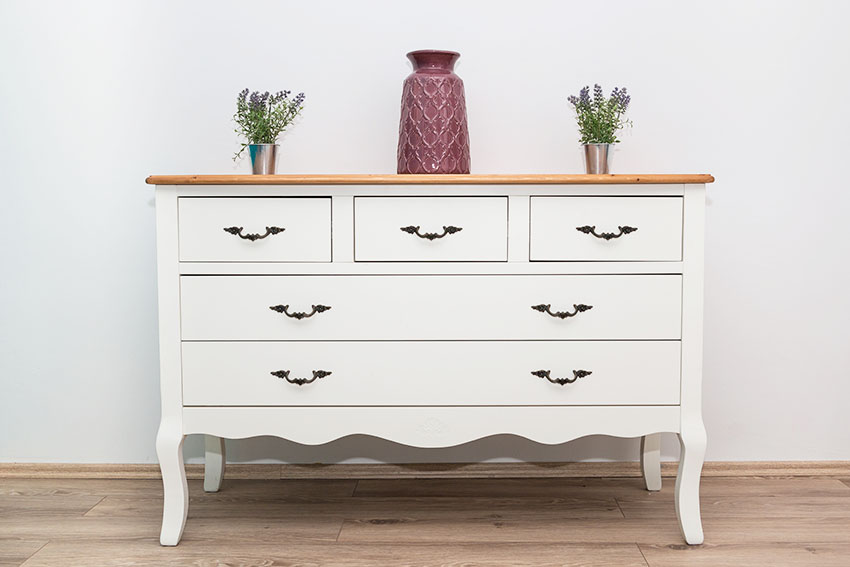
With a wide range of dresser options, how do you choose the one that would perfectly fit your bedroom?
Here are some factors to consider.
To decide on the depth of your drawer, calculate the distance between the wall where your prospective drawer will be situated and the furniture your future drawer will be facing.
Once you have that, subtract 36 inches. The difference will determine whether your drawer will have room to open and close.
To choose the right furniture width, ensure nearby doors can swing open without hitting any part of it.
For the height, make sure that the bigger items that will be utilizing the counter space of the piece won’t be too lofty to fit, whether it be a television or a mirror.
When buying, you can often purchase matching bedroom sets that provide benefits such as a lower cost than if bought individually, matching pieces with similar paint colors or stains, and having everything delivered from one company at a single price.
Deciding on a chest of drawers product will fall on many factors, including the style and budget, but ultimately, it will come down to size.
Measuring for your ideal bedroom furniture is simple and will only require a tape measure, so good luck measuring, and happy shopping!
Do you have any experience or tips for choosing the best furniture for a bedroom? Share your home decor ideas or questions in our comment section. For more related content, visit our nightstand dimensions here.

